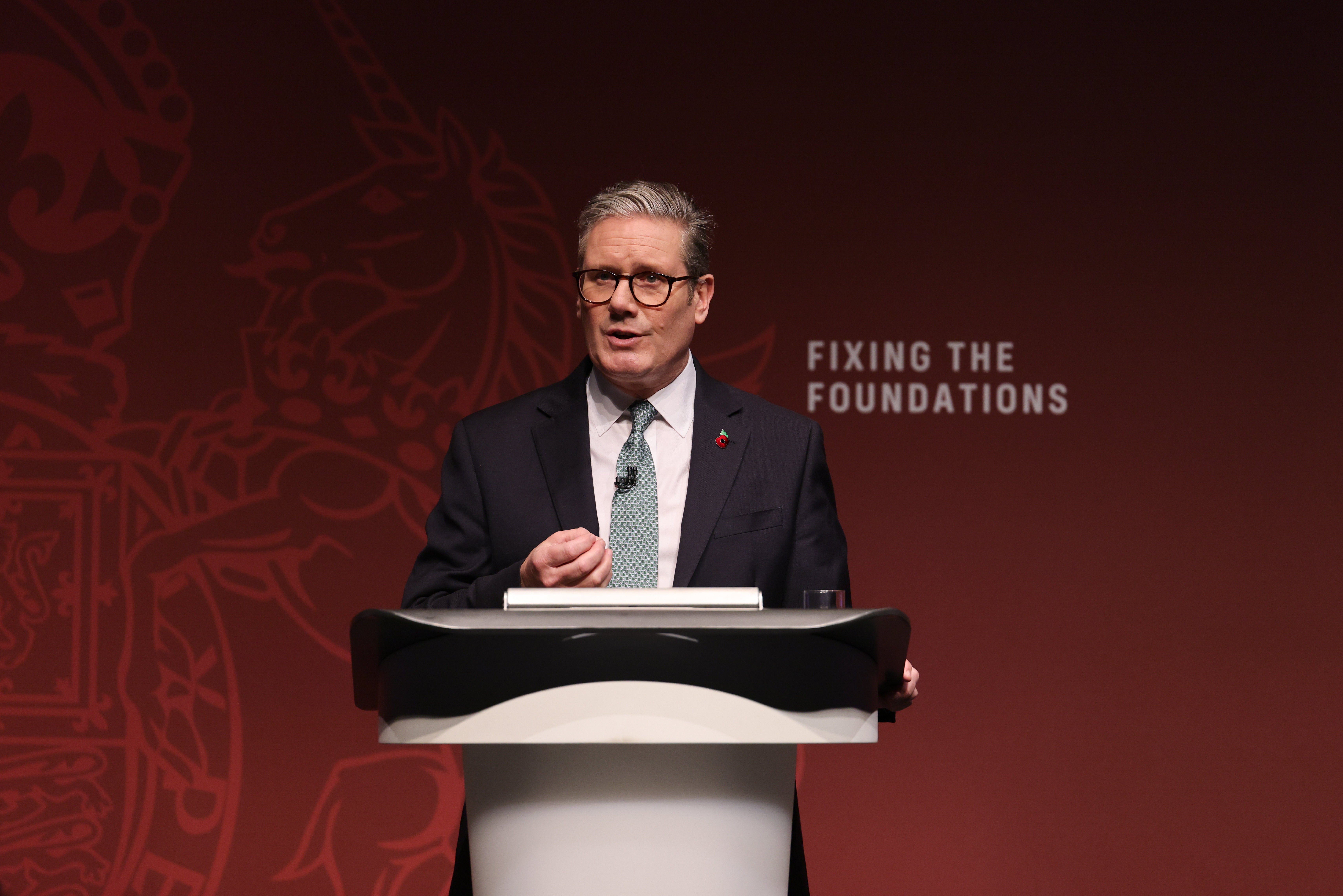Keir Starmer suffers ‘unprecedented’ collapse in popularity for new PM
The prime minister’s approval rating has collapsed since winning the election
Your support helps us to tell the story
From reproductive rights to climate change to Big Tech, The Independent is on the ground when the story is developing. Whether it's investigating the financials of Elon Musk's pro-Trump PAC or producing our latest documentary, 'The A Word', which shines a light on the American women fighting for reproductive rights, we know how important it is to parse out the facts from the messaging.
At such a critical moment in US history, we need reporters on the ground. Your donation allows us to keep sending journalists to speak to both sides of the story.
The Independent is trusted by Americans across the entire political spectrum. And unlike many other quality news outlets, we choose not to lock Americans out of our reporting and analysis with paywalls. We believe quality journalism should be available to everyone, paid for by those who can afford it.
Your support makes all the difference.Sir Keir Starmer’s approval rating has collapsed more significantly after winning an election than any other prime minister in modern history, a new poll has shown.
Following the July election, which saw the Labour Party win a landslide majority of 174 seats, the prime minister approval rating reached a high of plus 11.
But by October, just days before Rachel Reeves’ Budget on Wednesday, new polling from More in Common showed that the prime minister’s personal approval rating has fallen to -38 – a net drop of 49 points.
His rating is now lower than that of former prime minister Rishi Sunak, which now sits at -31 following an increase of six points since he lost the election.

Sir Tony Blair’s approval rating was at plus 46 in August 1997, three months after he won a landslide election victory. At the time of the election, his approval rating stood at plus 60.
It was not until summer 2000 when his approval rating slipped to below zero.
Meanwhie, David Cameron’s approval rating did not turn negative until the beginning of 2011, after the formation of the coalition government in 2010.
It was not until April 2012 that his rating dropped to around -30, the polling showed.
Boris Johnson started off with an approval rating of -20, despite winning the 2019 election. But his rating improved to plus three by January 2020, and was at plus 14 by the following March.
Luke Tryl, executive director at More in Common, described Sir Keir’s collapse in popularity as “unprecedented” when compared to other modern prime ministers.
He added: “Although they had a landslide, in terms of popularity they didn’t have the slack to spare that other new governments had.”
Mr Tryl blamed two key issues for the change in approval ratings, explaining: “If you ask what people have noticed, by a country mile it is the decision on the winter fuel allowance and the early release of prisoners.”
He also pointed to the row over freebies and donations.
The survey follows weeks of infighting after Labour won its historic victory, coupled with questions over gifts for the prime minister and senior cabinet ministers, and fears the government had lost control of its own agenda.
Asked earlier this month whether he thinks the first 100 days of government were a success, the prime minister’s official spokesperson said: “It’s up to the public to decide whether the first 100 days of the government have been a success.”
The latest polling comes just days before the chancellor is set to unveil her first budget, warning that the expected tax rises will be just the begining of painful measures to fix “14 years of Tory damage”.
She has promised to produce economic growth but also pledged to her party that there will be “no new austerity”.
The polling, which surveyed 1,012 adults, was conducted by More in Common between October 9 and 10.
Join our commenting forum
Join thought-provoking conversations, follow other Independent readers and see their replies
Comments